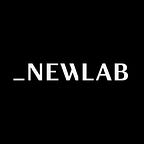By 2024, the global skin industry is anticipated to top $177 billion. Two components contributing to this growth are an increased demand for organic products and the arrival of advanced technologies, such as AR and AI. This year alone L’OREAL acquired ModiFace, which provides companies with custom augmented reality modules, real time facial analysis and simulations, and other beauty technologies.
One of the newcomers, Atolla, is combining both nature and tech by developing nutrient-rich, individualized serums based on a proprietary algorithm that analyzes skin from the inside out.
Quantifiable Predictions
Focused on proactive skincare, the team — comprised of MIT grads CEO Meghan Maupin and COO Sid Salvi, and CSO Dermatologist Dr. Ranella Hirsch — is evangelizing a data-driven approach to product development. “Using advanced clustering techniques, we developed more holistic, comprehensive skin archetypes starting with our current customer dataset and are continuously refining with each new user on the platform,” explains Maupin. That approach is then “merged with existing scientific literature on ingredient efficacy to guide product development,” thereby improving potency and inclusivity.
Atolla’s personalized four step process empowers people to make more informed decisions about their skin.Customers begin with a history intake that evaluates other products used and skin sensitivities. From there, physical measurements track oil, moisture, and pH to the effect of the environment and lifestyle (humidity, diet, hormones, etc). Selfies are then used to track visual progress and train a computer vision algorithm to quantify the severity of specific skin concerns, followed by preference testing to determine which ingredients absorb best.
Equipped with a deep understanding of customer needs, Atolla’s AI determines individualized ingredient combinations to fit a customer’s skin and lifestyle based on what has worked for others with similar attributes. The result is a serum that includes a dosage of exclusive ingredients apropos to the severity of someone’s skin concern. Leveraging machine learning in this way means Atolla can identify the cause of issues and provide a personalized solution that adapts to the way your skin changes over time.
Beneath the Surface
Traditionally, skincare falls into three categories: oily, dry, and combination skin. Atolla is challenging this archetype by going beyond factors like race, which are often taken into account during skin evaluations. “Most people would be surprised to know that we do not cluster by ethnicity, which is just one of many factors that impact your skin health,” Maupin states. Instead, Atolla uses collaborative filtering to let the data inform a different grouping of skincare consumers that are weighted in lifestyle data based on social, environmental, and economic factors.
Maupin’s graduate thesis at MIT explored the correlation between skin health and social factors and pressures. Due to a social hierarchy that idealizes whiteness, “women of color, regardless of their socio-economic status have higher levels of beauty product-related environmental chemicals in their body,” Maupin identified. Multicultural women are the greatest users of skin lightening creams that contain hazardous and sometimes lethal chemicals, such as mercury and hydroquinone.
Maupin cites the work of scientist Ami Zota and her paper “The Environmental Injustice of Beauty,” which explores these kinds of social and environmental factors that create health disparities amongst women and often lead to skin conditions. Glorified norms, Zota argues, are critical in understanding factors that influence both the use of unsafe products and how to course correct.
Personalized Principles
Atolla was born out of a desire to disrupt marginalizing standards perpetuated by an unchallenged representation of general archetypes. This lack of knowledge has translated to the absence of informed, preventative care. “In the US, less than 10% of people have been to a dermatologist. We want to ensure the other 90% are equipped with the tools to optimize their best skin health everyday,” Maupin states.
The Atolla model is committed to a beauty industry rooted in data-driven products, the individual, and long-term health. Their technology, which focuses on a diverse set of psychographic, demographic, and geographic data, aims to make quantifiable decisions grounded in an inclusive and holistic viewpoint. Looking forward, Atolla plans on leveraging this concise collection of useful information with medical professionals who are often beyond the reach of a clinical visit, thus informing a new model of care and outcome tracking.
Atolla beat their crowdfunding campaign to launch the Atolla Skincare System, which starts at $20 USD per month and includes at home skin analysis tools for measuring oil, moisture, and pH levels and a customized serum, created uniquely for the user.
Atolla is a New Lab member company residing at New Lab’s flagship in the Brooklyn Navy Yard. Learn more about membership opportunities.
